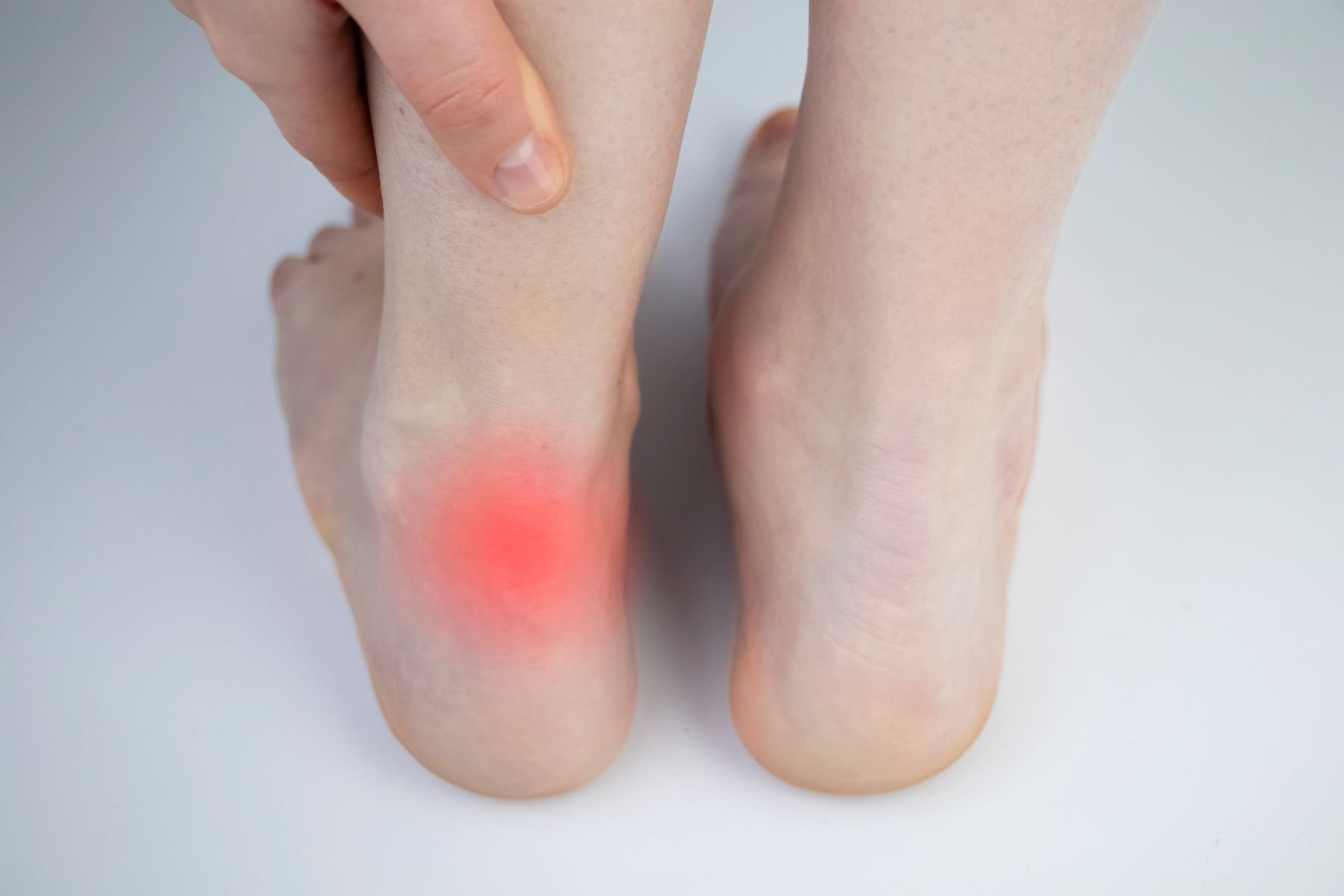Achilles Tendonitis: An Injury You Shouldn’t Push Through
Nothing is more frustrating than pain when it affects your ability to do the sports and activities you love. You tell yourself it will be better in a day or two. You might even try to train through it. But eventually, it starts to slow you down or stops you in your tracks.
Many people experience this when dealing with Achilles tendonitis, a condition that can cause significant pain on the back of your ankle. It's also an injury that you don't want to just "push through."
In this article, we'll look at the causes and symptoms of Achilles tendonitis and how Dr. Elton and his team at Vail-Summit Orthopaedics & Neurosurgery can help you recover.
What Is Achilles Tendonitis?
Achilles tendonitis is an overuse, acute injury of the well-known Achilles tendon, the large band of tissue behind your ankle that connects the calf muscle to the heel bone. It plays a critical role in helping us raise our feet and lower our heels when we walk, run, or jump.
The Achilles tendon is tough and flexible, but like any tendon, it's prone to inflammation and irritation from repetitive stress activities.
What Causes Achilles Tendonitis?
There are a few factors that can contribute to the development of Achilles tendonitis. The three most common causes that Dr. Elton sees in his clinic are:
A sudden increase in the length or intensity of workouts, such as running more miles or hiking up steep inclines
Going hard only on weekends (weekend warriors)
Jumping into a new sport unprepared
Other risk factors include:
Tight calf muscles
Bone spurs
Flat feet
Worn out or improper shoes
Age (as you get older, the tendon becomes less flexible and less able to handle stress)
What Are the Symptoms of Achilles Tendonitis?
Patients often report the following symptoms:
Achilles tendon pain and tenderness
Pain down the back of the ankle or heel that worsens with activity
Pain or stiffness in the morning that improves throughout the day
Severe pain the day after a workout
Swelling or warmth in the area
Difficulty lifting the foot or pointing the toes
If you suspect you may have Achilles tendonitis, it's important to see an orthopaedic specialist. If left untreated, it can lead to tendinosis (where the tendon is actually breaking down) or even a tendon rupture.
How Is Achilles Tendonitis Diagnosed and Treated?
Achilles tendonitis is diagnosed based on a physical examination and a review of your symptoms. Your doctor may also order imaging tests, such as X-rays or an MRI, to rule out other conditions or determine the extent of damage to the tendon.
Achilles tendonitis typically responds very well to conservative treatment methods, including:
Rest: The best thing you can do to recover faster is rest and avoid activities that put stress on the tendon. This doesn't mean you can't be active! Biking and swimming are great low-impact alternatives.
Ice: Applying ice to the most painful area can help with pain and swelling.
Over-the-counter medications: Ibuprofen or naproxen can help reduce inflammation and relieve pain.
Physical therapy: Eccentric exercises and flexibility stretches can reduce strain on your tendon and improve overall function.
Shoe inserts/orthotics or a night splint: In some cases, wearing a night splint or orthotics may be necessary to relieve pressure on the tendon.
Recovery time will vary for each person. If you've been pushing through the pain for a couple of months, a full recovery will likely take longer than someone experiencing symptoms for a week or two.
Generally speaking, most people will start to feel improvement within 4-6 weeks, but it can take several months for all symptoms to subside.
If the Achilles tendon is severely damaged or the pain does not improve with several weeks of conservative treatments, Dr. Elton may recommend surgery.
Surgical procedures can include:
Lengthening of the calf muscle to reduce the stress on the tendon
Removing damaged tissue or bone spurs
Repairing the tendon
Pain on the Back of Your Ankle? Contact Team Elton Today!
If you're experiencing Achilles tendon pain, contact Team Elton today! An early diagnosis may help reduce your recovery time and prevent further damage. Dr. Elton will work with you to develop a customized treatment plan that allows you to return to the activities you love without pain.
Dr. Elton conveniently sees patients in the Vail, Edwards, and Frisco clinics. Call (970) 476-7220 to schedule an appointment or submit a request using this online form.




